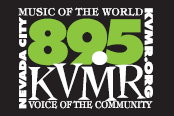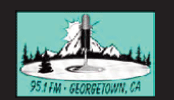
Money Matters Update- Financial Newsletter: Read. June 2, 2013

Markets still going nowhere although it is getting a bit dicey.
Feds did claim they would slow asset purchase money programs (money printing, also called QE) and that weighed on the markets but now the Feds are backing off that threat.
I keep saying “it wont be enough” and they will never stop. If they try, much like they tried raising interest rates, it won’t be long before they have to re-start the programs.
If you recall when interest rates were raised over a dozen times by the FEDS in the mid 2000’s which caused the housing crash, I said over and over they would drop them again because the US economy could not stomach increasing rates because of all the debt.
As foretold, it could not and the rates came back down but the damage was done to the housing market- it crashed.
Now they talk about slowing the money printing programs but they cannot. The stock market will crash.
What is interesting here is that interest rates are rising even though the US FED and the Japan (Fed) is trying hard to LOWER RATES. Much like swimming against the tide, one day they will not be able to swim any longer and rates will rise despite their efforts.
Could this be happening now?
It may be in Japan. (See the previous Money Matters update). Despite Japans efforts to lower rates they are rising!
We will see if this is taking hold in the US. If it is, bad things are coming sooner then I expected. They will never stop printing until they have to but they MUST stop to avoid the catastrophe that is coming:

(How many times must we say this!)
Markets:
For now we wait. I think a market minor set back is in the near future. Maybe 10 % or more so be careful. Set your stops and protect profits. Do not add a lot of stocks here. Only nibble.
Always make sure you have enough gold and silver in possession and consider moving money offshore for protection and privacy. Here is some information on how to do it.
I am also planning a class on this which will be the next Money Class. Email me to attend. Cost is $199.00 with an early sign up discount of $50.00 bucks if you mail in your payment before the end of June. The money class will cover:
Real Estate, Offshore Money, Swiss Annuities, How to open a Canadian Bank Account. (We may also plan a group trip there to get everyone who is interested up there and at the right bank! We will also make hotel reservations if you like). We will also go over more gold questions, Apple questions, stock brokerage issues, opening a brokerage account, AND take as many questions as you have in the time allowed. This smaller setting allows me to talk more personably with those attending and answer specific questions. I will also be open to any and all questions in this smaller setting. We will probably limit class size so I can answer all questions.
Mail us your payment to PMB 101, 578 Sutton Way Grass Valley Ca 95945. Include your email address and what class (1 or 2) you prefer.
Email us who is interested or mail in payment to reserve your spot.
How to get your money OUT of the US:
Moving money offshore has a negative connotation conjuring up visions of tax cheats and drug money but in actuality it can offer a unique option in asset diversification for investors willing and able to take advantage of it. It’s entirely legal for US citizens to establish foreign accounts but you must follow the IRS reporting requirements which are fairly simple for a qualified accountant.
Maintaining an offshore account or 2 may provide added protection from lawsuits and also offer a degree of privacy that domestic investments do not. They also can diversify you in non US dollar assets that may offset loss of purchasing power from a falling US dollar. (Inflation)
There are many options available for investors and a variety of firms ready to assist you.
The easiest to conceptualize and implement is a simple savings account at a bank in another country. Canada is the closest and both HSBC and Royal Canadian Bank welcome US citizens. You must go there and show identification but once you done that, you can mail in deposits and do banking in the account from the privacy of your home.
Your money is converted to Canadian dollars and insured by the Canadian Central Bank, much like our FDIC insurance here. Being in Canadian dollars offers you a hedge against holding a lot of US dollars here should the US dollar fall in value.
Safe deposit boxes are also available at any bank you open an account with.
You can buy annuities in a foreign country and the Swiss Annuity is a favorite of mine. Unlike American annuities (which I don’t recommend), a Swiss annuity has no tie up period, is devoid of the massive fees annuities here can have, and usually pay you a dividend and an interest rate. You can denominate them in a variety of foreign currencies which again help offset any loss of value from a potential plunge in the US dollar. They are treated somewhat like an IRA here so there may be age requirements for withdrawing the funds. Check with your accountant. (You may have to search around for an accountant familiar with offshore investments but they are out there).
Managed accounts which offer a variety of investments are also available and these may offer more options as to where you can place you money. You can invest in commodities, real estate, bonds, gold, silver and a host of other options once the paper work is established. Your money might be in Switzerland, Lichtenstein, Sweden or a host of other locations, all of which is selected by you in conjunction with the firm you decide to do business with.
You can buy gold or silver offshore and a variety of programs offer both allocated and unallocated accounts for the discerning investor. Unallocated means you buy into a large cache of metal with other investors and there are no storage charges. Allocated means you actually pick the coins or bars you wish to buy and you are then provided a serial number of every item you purchased and a small storage fee is charged.
There are many other options available to US investors and although the IRS is making it more difficult to invest offshore, as of today it is still entirely legal. The minimum requirement for investing can be well within reach of almost any investor depending on what you buy. Having at least some funds out of US borders and invested in non US assets offers yet another level of privacy and diversification and the more you have of those 2 the better.
Email me if you have questions as always,
All the best and thanks for the kind notes concerning my mom passing.
Take Care and Money Matters airs this Thursday at noon, PST on KVMR.
Marc







